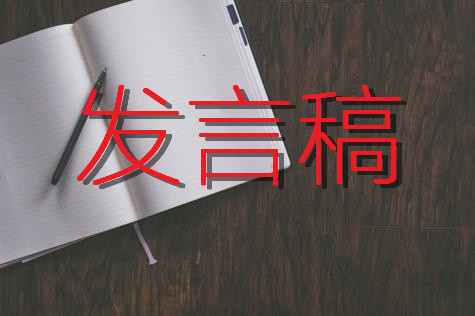《新概念英语》第三册到底有多难
时间:2020-10-06 来源:博通范文网 本文已影响 人 
《新概念英语》第三册到底有多难?下面小编就和大家分享《新概念英语》第三册到底有多难,希望能够帮助到大家,来欣赏一下吧!
《新概念英语》第三册到底有多难?
第1-20课
Texts | LexileMeasures(L) | MeanSentenceLength | MeanLogWordFrequency | WordCount |
1 | 1210 | 21.00 | 3.55 | 273 |
2 | 820 | 13.26 | 3.69 | 252 |
3 | 950 | 14.76 | 3.56 | 251 |
4 | 1050 | 18.29 | 3.70 | 256 |
5 | 1070 | 17.71 | 3.59 | 248 |
6 | 960 | 15.56 | 3.63 | 249 |
7 | 960 | 15.25 | 3.59 | 244 |
8 | 1040 | 16.87 | 3.58 | 253 |
9 | 860 | 12.35 | 3.45 | 247 |
10 | 1090 | 18.21 | 3.59 | 255 |
11 | 730 | 10.68 | 3.51 | 267 |
12 | 930 | 15.18 | 3.66 | 258 |
13 | 870 | 15.81 | 3.89 | 253 |
14 | 1240 | 22.64 | 3.62 | 249 |
15 | 1050 | 16.38 | 3.50 | 262 |
16 | 890 | 14.82 | 3.72 | 252 |
17 | 1020 | 15.75 | 3.50 | 252 |
18 | 880 | 12.55 | 3.43 | 251 |
19 | 880 | 14.11 | 3.65 | 254 |
20 | 930 | 14.88 | 3.62 | 253 |
第21-40课
Texts | LexileMeasures(L) | MeanSentenceLength | MeanLogWordFrequency | WordCount |
21 | 940 | 14.96 | 3.61 | 344 |
22 | 920 | 14.79 | 3.64 | 355 |
23 | 1000 | 17.00 | 3.69 | 357 |
24 | 1120 | 15.48 | 3.21 | 356 |
25 | 1000 | 17.43 | 3.74 | 366 |
26 | 1070 | 15.86 | 3.38 | 349 |
27 | 1120 | 18.26 | 3.52 | 347 |
28 | 1100 | 18.20 | 3.57 | 364 |
29 | 950 | 15.39 | 3.63 | 354 |
30 | 880 | 14.40 | 3.69 | 360 |
31 | 1000 | 16.57 | 3.64 | 348 |
32 | 1040 | 18.05 | 3.70 | 361 |
33 | 910 | 14.36 | 3.61 | 359 |
34 | 1080 | 16.50 | 3.43 | 363 |
35 | 1070 | 17.95 | 3.62 | 359 |
36 | 1090 | 18.60 | 3.63 | 372 |
37 | 870 | 13.41 | 3.58 | 362 |
38 | 1080 | 17.63 | 3.56 | 335 |
39 | 950 | 15.57 | 3.66 | 358 |
40 | 1080 | 17.19 | 3.51 | 361 |
第41-60课
Texts | LexileMeasures(L) | MeanSentenceLength | MeanLogWordFrequency | WordCount |
41 | 1150 | 19.85 | 360.00 | 536 |
42 | 1080 | 17.86 | 3.58 | 518 |
43 | 1140 | 19.15 | 3.56 | 517 |
44 | 1040 | 16.38 | 3.52 | 524 |
45 | 1090 | 16.25 | 3.38 | 390 |
46 | 1110 | 16.81 | 3.39 | 538 |
47 | 1220 | 16.76 | 3.10 | 486 |
48 | 1010 | 15.91 | 3.54 | 541 |
49 | 1170 | 17.17 | 3.28 | 515 |
50 | 1150 | 18.89 | 3.51 | 529 |
51 | 1240 | 20.64 | 3.44 | 454 |
52 | 1110 | 17.79 | 3.50 | 516 |
53 | 1160 | 18.46 | 3.44 | 480 |
54 | 1100 | 17.30 | 3.47 | 519 |
55 | 1120 | 18.93 | 3.59 | 511 |
56 | 1210 | 21.35 | 3.58 | 491 |
57 | 950 | 16.30 | 3.74 | 538 |
58 | 1220 | 23.50 | 3.74 | 517 |
59 | 1210 | 20.32 | 3.49 | 508 |
60 | 1000 | 17.24 | 3.72 | 586 |
如果把每20课的测评结果进行均值处理(数值均作了四舍五入处理),可得出以下结果:
Texts(Lessons) | LexileMeasures(L) | MeanSentenceLength | MeanLogWordFrequency | WordCount |
第1-20课 | 972 | 15.80 | 3.60 | 254 |
第21-40课 | 1014 | 16.38 | 3.58 | 357 |
第41-60课 | 1124 | 18.34 | 3.51 | 511 |
从这个表格可以看出,《新概念英语》第三册的课文难度基本情况是这样的(以下的参考数据均选自蓝思分级阅读测评体系的官网:www.lexile.com,标准为2012年版):
1、第1-20课的课文难度平均值为972L,说明这些课文的难度相当于美国当地初中一年级学生(即七年级)的阅读水平(970L-1120L),但是同龄相对阅读能力是偏低的。
2、第21-40课的课文难度平均值为1014L,说明这些课文的难度基本相当于美国当地初中二年级学生(即八年级)的阅读水平(1010L-1185L),但是同龄相对阅读能力是偏低的。
3、第41-60课的课文难度平均值为1124L,这个难度相当于美国当地初中三年级学生(九年级)的阅读水平(1050L-1260L),但是同龄相对阅读能力是趋中的。
我们再来参考中国书飞网提供的一个参照表:
美国教育年级 | 美国教育级别 | LEXILE级别 | 中国教育年级 | 字数/分钟 |
美国学龄前 | 0to 100L | 中国学龄前 | ||
美国学龄前 | 100Lto 200L | 中国小学1-3年级 | ||
美国学龄前 | 150Lto 300L | 中国小学4-6年级 | ||
美国小学1年级 | 1thGrade | 200Lto 400L | 中国初中1年级 | 50-70 |
美国小学2年级 | 2thGrade | 300Lto 500L | 中国初中2年级 | 70-100 |
美国小学3年级 | 3thGrade | 500Lto 700L | 中国初中3年级 | 100-130 |
美国小学4年级 | 4thGrade | 650Lto 850L | 中国高中1年级 | 130-140 |
美国小学5年级 | 5thGrade | 750Lto 950L | 中国高中2/3年级 | 140-160 |
美国小学6年级 | 6thGrade | 850Lto 1050L | 中国大学1年级 | 160-170 |
美国初中1年级 | 7thGrade | 950Lto 1075L | 中国大学2年级 | 流利阅读 |
美国初中2年级 | 8thGrade | 1000Lto 1100L | 中国大学3年级 | |
美国初中3年级 | 9thGrade | 1050Lto 1150L | 中国大学4年级 | |
美国高中1年级 | 10thGrade | 1100Lto 1200L | 中国研究生1年级 | |
美国高中2/3年级 | 11thand 12th Grade | 1100Lto 1300L | 中国研究生2年级 | |
SAT.GRE.GMAT.CAST | 1300L | 中国博士生 |
(当然,这个对照表是否科学准确尚待定论,但是可以作为一个初步的参考。)
从以上分析看来,如果从阅读角度来看,《新概念英语》第三册的课文难度已经达到了中国的大学四年级的水平。然而,我们目前国内的《新概念英语》学习者当中,中小学生比例却越来越大,不少正在学习第三册的学生其实还只是初中生!
新概念英语第三册课文翻译及词汇Lesson52
【课文】
My cousin, Harry, keeps a large curiously-shaped bottle on permanentdisplay in his study. Despite the fact that the bottle is tinted a delicateshade of green, an observant visitor would soon notice that it is filled withwhat looks like a thick, grayish substance. If you were to ask Harry what was inthe bottle, he would tell you that it contained perfumed mud. If you expresseddoubt or surprise, he would immediately invite you to smell it and then to rubsome into your skin. This brief experiment would dispel any further doubts youmight have. The bottle really does contain perfumed mud. How Harry came into thepossession of this outlandish stuff makes an interesting story which he is fondof relating. Furthermore, the acquisition of this bottle cured him of a badhabit he had been developing for years.
Harry used to consider it a great joke to go into expensive cosmetic shopsand make outrageous requests for goods that do not exist. He would inventfanciful names on the spot. On entering a shop, he would ask for a new perfumecalled 'Scented Shadow' or for 'insoluble bath cubes'. If a shop assistant toldhim she had not heard of it, he would pretend to be considerably put out. Heloved to be told that one of his imaginary products was temporarily out of stockand he would faithfully promise to call again at some future date, but of coursehe never did. How Harry managed to keep a straight face during theseperformances is quite beyond me.
Harry does not need to be prompted to explain how he bought his preciousbottle of mud. One day, he went to an exclusive shop in London and asked for'Myrolite', the shop assistant looked puzzled and Harry repeated the word,slowly stressing each syllable. When the woman shook her head in bewilderment,Harry went on to explain that 'myrolite' was a hard, amber-like substance whichcould be used to remove freckles. This explanation evidently conveyed somethingto the woman who searched shelf after shelf. She produced all sorts of weirdconcoctions, but none of them met with Harry's requirements. When Harry put onhis act of being mildly annoyed, the assistant promised to order some for him.Intoxicated by his success, Harry then asked for perfumed mud. He expected theassistant to look at him in blank astonishment. However, it was his turn to besurprised, for the woman's eyes immediately lit up and she fetched severalbottles which she placed on the counter for Harry to inspect. For once, Harryhad to admit defeat. He picked up what seemed to be the smallest bottle anddiscreetly asked the price. He was glad to get away with a mere twenty poundsand he beat a hasty retreat, clutching the precious bottle under his arm. Fromthen on, Harry decided that this little game he had invented might prove to beexpensive. The curious bottle, which now adorns the bookcase in his study, washis first and last purchase of rare cosmetics.
【课文翻译】
我的堂兄哈里在他的书房里一直摆着一只形状古怪的大瓶子。尽管那只瓶子呈淡绿色,但细心的客人很快就会发现瓶里装的是一种看上去黏稠,颜色发灰的东西。要是你问哈里瓶里装着什么,他会告诉你是香水泥。如果你表示怀疑或惊奇,他会立即请你闻一闻,然后取出一些抹在你的皮肤上。这一简单的试验会消除你可能存有的一切疑虑。瓶里装的的确是香水泥。哈里如何得到这种稀奇古怪的东西的,这里有个有趣的故事,而且他挺爱把它讲给别人听。此外,得到这瓶香水泥还治好了他多年的一个坏习惯。
哈里曾认为走进一家名贵化妆品商店,荒唐地提出要买一种根本不存在的商品是件开心的事儿。他会当场编造出一些稀奇古怪的货名。他走进商店后,会提出要一种名叫“香影”的新型香水或什么“不溶浴皂”。要是女售货员告诉他从未听说过这些东西,他会装出十分遗憾和不安的样子。他爱听售货员说他想像出来的那种东西暂时脱销,于是他就煞有介事地许诺改天再来光顾。当然,他再也不会来了。我实在想像不出哈里在这些表演中是怎样装出一本正经的样子的。
毋须暗示哈里就会向你讲起他买下那瓶珍贵香水泥的经过。一天,他去伦敦一家高级商店要买一种叫“密诺莱特”的东西,店员露出诧异的神色。哈里又慢慢地,一字一顿说了一遍这个词,那个女售货员还是迷惑不解地摇了摇头。哈里便进一步解释“密诺莱特”是一种质地坚硬、状似琥珀的东西,可以用来除去雀斑。他的解释显然对女售货员有些启示。她一个货架接着一个货架地寻找,拿出各种各样稀奇古怪的化妆品,但没有一样能够符合哈里的要求。哈里装出不高兴的样子时,女售货员答应为他定货。哈里为他的骗术而感到洋洋得意,又提出要买香水泥。他原想女售货员会惊奇地望着他,不知所措,没料到这回该轮到他自己吃惊了。因为那女售货员听完哈里的话后,马上眼睛一亮,拿出几瓶东西放在柜台上让哈里挑选。哈里只好认输。他挑出一个看上去最小的瓶子,谨慎地问了价。他庆幸自己只破费了20英镑便得以脱身。他把那宝贵的瓶子放在腋下夹着,溜之大吉。从那以后,他认识到自己发明的小小恶作剧是要付出很大的代价的。在他书房的书柜里摆着那瓶形状古怪的香水泥就是他第一次也是最后一次购买的稀有化妆品。
【词汇】
permanent adj. 永久的
tint v. 给……染色
delicate adj. 淡色的
shade n. 色度
observant adj. 观察力敏锐的
greyish adj. 浅灰色的
dispel v. 驱散,消除
outlandish adj. 稀奇古怪的
acquisition n. 获得
cosmetic n. 化妆品
outrageous adj. 无理的,令人不能容忍的
fanciful adj. 想像出来的
insoluble adj. 不可溶解的
prompt v. 敦促,激励
exclusive adj. 专售高档商品的
syllable n. 音节
bewilderment n. 迷惑,糊涂
freckle n. 雀斑
evidently adv. 显然的,明显地
weird adj. 奇异的,古怪的
concoction n. 调制品
intoxicate v. 陶醉,得意忘形
blank adj. 无表情的,茫然的
discreetly adv. 谨慎地
clutch v. 抓住
adorn v. 装饰,打扮
新概念英语第三册课文翻译及词汇Lesson53
【课文】
The Scandinavian countries are much admired all over the world for theirenlightened social policies. Sweden has evolved an excellent system forprotecting the individual citizen from high-handed or incompetent publicofficers. The system has worked so well, that it has been adopted in othercountries too.
The Swedes were the first to recognize that public official like civilservants, police officers, health inspectors or tax-collectors can make mistakesor act over-zealously in the belief that they are serving the public. As longago as 1809, the Swedish Parliament introduced a scheme to safeguard theinterest of the individual. A parliamentary committee representing all politicalparties appoints a person who is suitably qualified to investigate privategrievances against the State. The official title of the person is'Justiteombudsman', but the Swedes commonly refer to him as the 'J.O.' or'Ombudsman'. The Ombudsman is not subject to political pressure. He investigatescomplaints large and small that come to him from all levels of society. Ascomplaints must be made in writing, the Ombudsman receives an average of 1,200letters a year. He has eight lawyer assistants to help him and examines everysingle letter in detail. There is nothing secretive about the Ombudsman's work,for his correspondence is open to public inspection. If a citizen's complaint isjustified, the Ombudsman will act on his behalf. The action he takes variesaccording to the nature of the complaint. He may gently reprimand an official oreven suggest to parliament that a law be altered. The following case is atypical example of the Ombudsman's work.
A foreigner living in a Swedish village wrote to the Ombudsman complainingthat he had been ill-treated by the police, simply because he was a foreigner.The Ombudsman immediately wrote to the Chief of Police in the district askinghim to send a record of the case. There was nothing in the record to show thatthe foreigner's complaint was justified and the Chief of Police strongly deniedthe accusation. It was impossible for the Ombudsman to take action, but when hereceived a similar complaint from another foreigner in the same village, heimmediately sent one of his lawyers to investigate the matter. The lawyerascertained that a policeman had indeed dealt roughly with foreigners on severaloccasions. The fact that the policeman was prejudiced against foreigners couldnot be recorded in the official files. It was only possible for the Ombudsman tofind this out by sending one of his representatives to check the facts. Thepoliceman in question was severely reprimanded and was informed that if anyfurther complaints were lodged against him, he would be prosecuted. TheOmbudsman's prompt action at once put an end to an unpleasant practice whichmight have gone unnoticed.
【课文翻译】
斯堪的纳维亚半岛各国实行开明的社会政策,受到全世界的推崇。在瑞典,已逐渐形成了一种完善的制度以保护每个公民不受专横的和不称职的政府官员的欺压。由于这种制度行之有效,已被其他国家采纳。
是瑞典人首先认识到政府工作人员如文职人员、警官、卫生稽查员、税务人员等等也会犯错误或者自以为在为公众服务而把事情做过了头。早在1809年,瑞典论会就建立一个保护公民利益的制度。议会内有一个代表各政党利益的委员会,由它委派一位称职的人选专门调查个人对国家的意见。此人官衔为“司法特派员”,但瑞典人一般管他叫“J.O.”,即“司法特派员”。司法特派员不受任何政治压力的制约。他听取社会各阶层的各种大小意见,并进行调查。由于意见均需用书面形式提出,司法特派员每年平均收到1,200封信。他有8位律师作他的助手协助工作,每封信都详细批阅。司法特派员的工作没有什么秘密可言,他的信件是公开的,供公众监督。如果公民的意见正确,司法特派员便为他伸张正义。司法特员采取的行动因意见的性质不同而有所不同。他可以善意地批评某位官员,也可以甚至向议会提议修改某项法律。下述事件是司法特派员工作的一个典型例子。
一个住在瑞典乡村的外国人写信给司法特派员,抱怨说他受到警察的虐待,原因就是因为他是个外国人。司法特派员立即写信给当地警察局长,请他寄送与此事有关的材料。材料中没有任何文字记载证明外国人所说的情况符合事实,警察局长矢口否认这一指控。司法特派员难以处理。但是,当他又收到住在同一村庄的另一个外国人写的一封内容类似的投诉信时,他立即派出一位律师前去调查。律师证实有个警察确实多次粗鲁地对待外国人。警察歧视外国人的事在官方档案中不可能加以记载,司法特派员只有派他的代表去核对事实才能了解真相。当事的警察受到严厉的斥责,并被告知,如果再有人投诉他,他将受到起诉。司法特派员及时采取的行动,迅速制止了这一起不愉快的事件,不然这件事可能因未得到人们注意而不了了之。
【词汇】
evolve v. 逐渐形成
high-handed adj. 高压的,专横的
incompetent adj. 不够格的,不称职的
over-zealously adv. 过分热情地
safeguard v. 保护
parliamentary adj. 国会的
qalified adj. 合格的
grievance n. 不平,冤屈
Justiteombudsman n. (瑞典的)司法特派员
ombudsman n. (瑞典和英国的)司法特派员
secretive adj. 保密的
correspondence n. 来往信件
alter v. 改变
accusation n. 谴责,指控
ascertain v. 查出,查明
prejudiced adj. 有偏见的,不公平的
prompt adj. 即时的
《新概念英语》第三册到底有多难相关文章:








